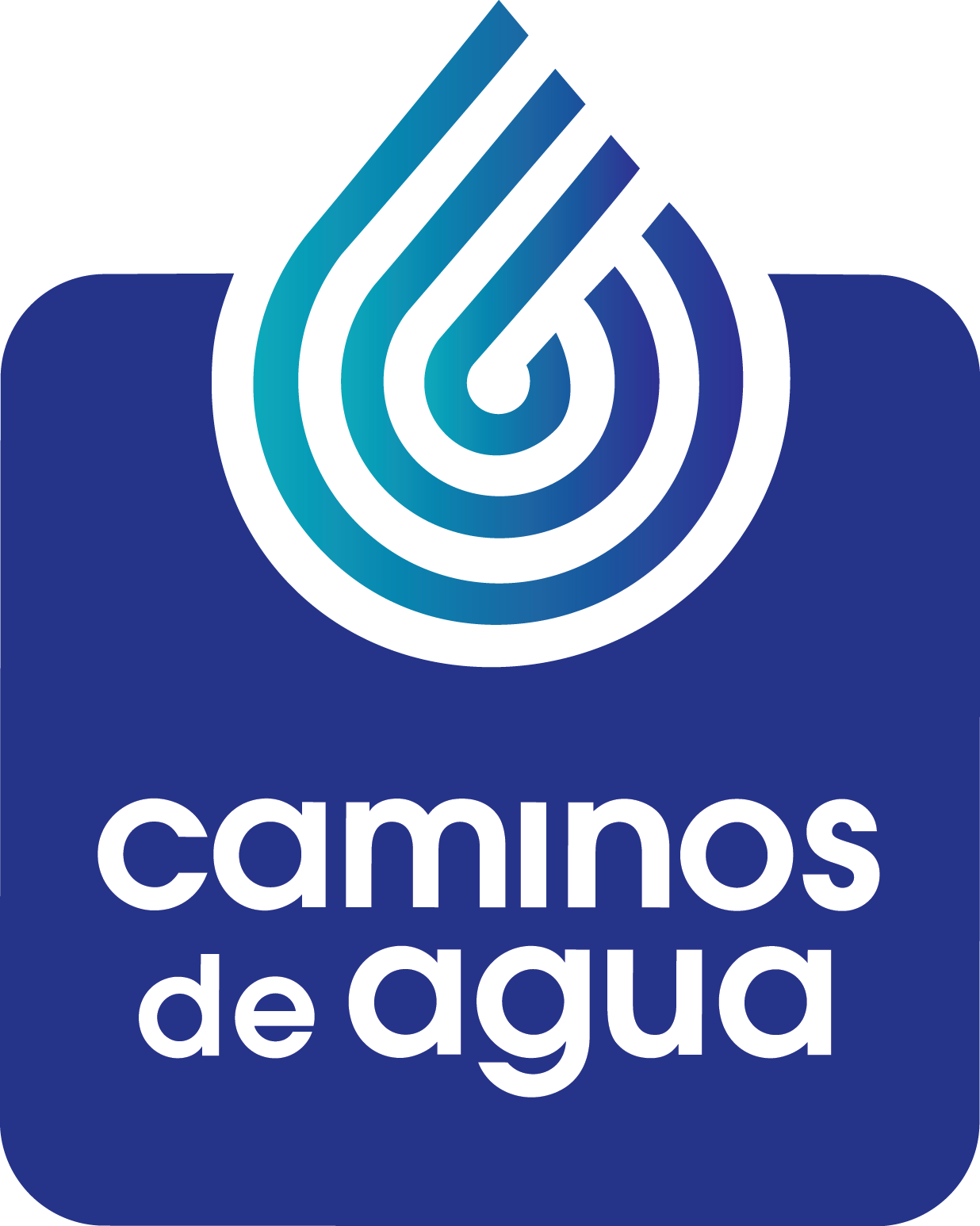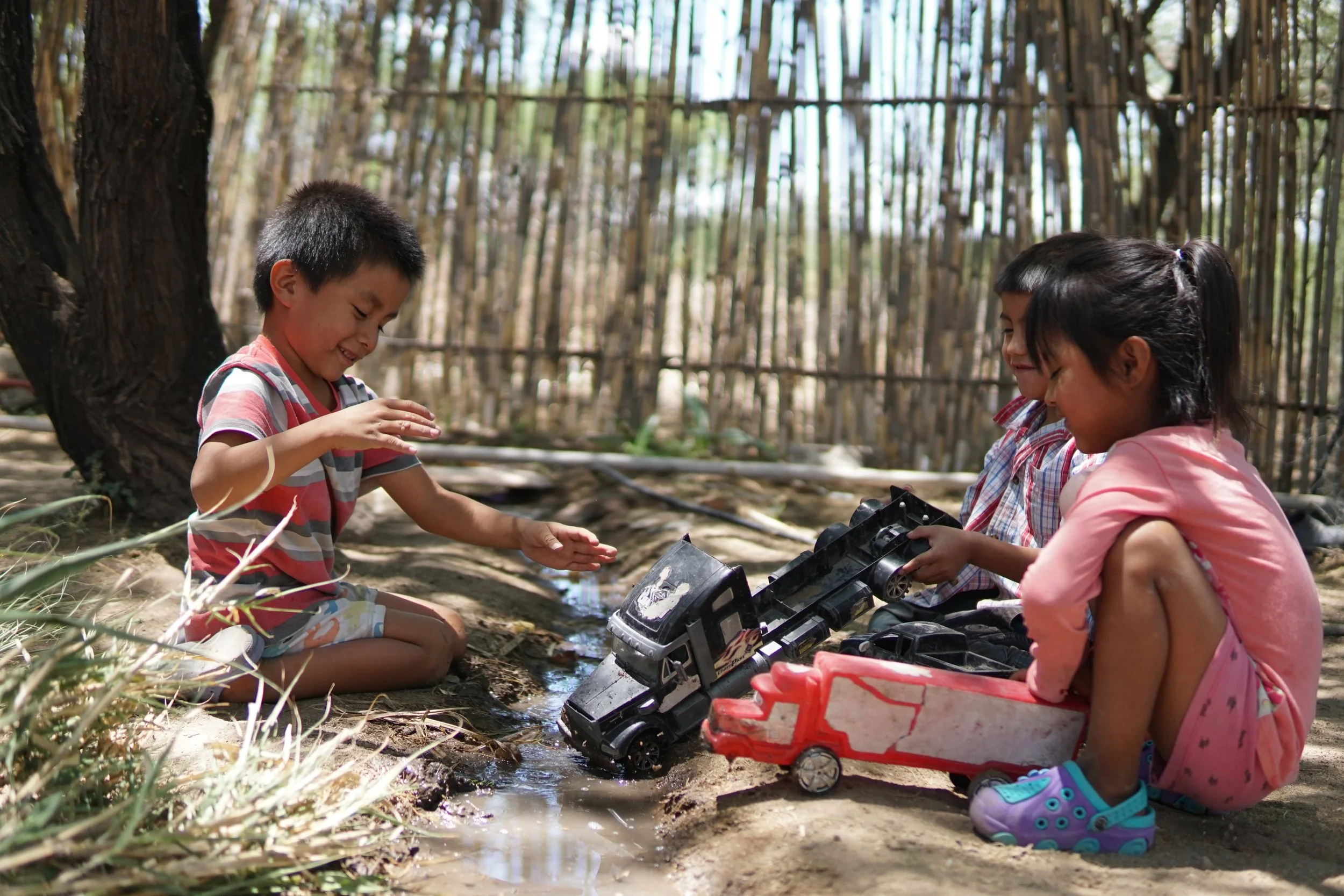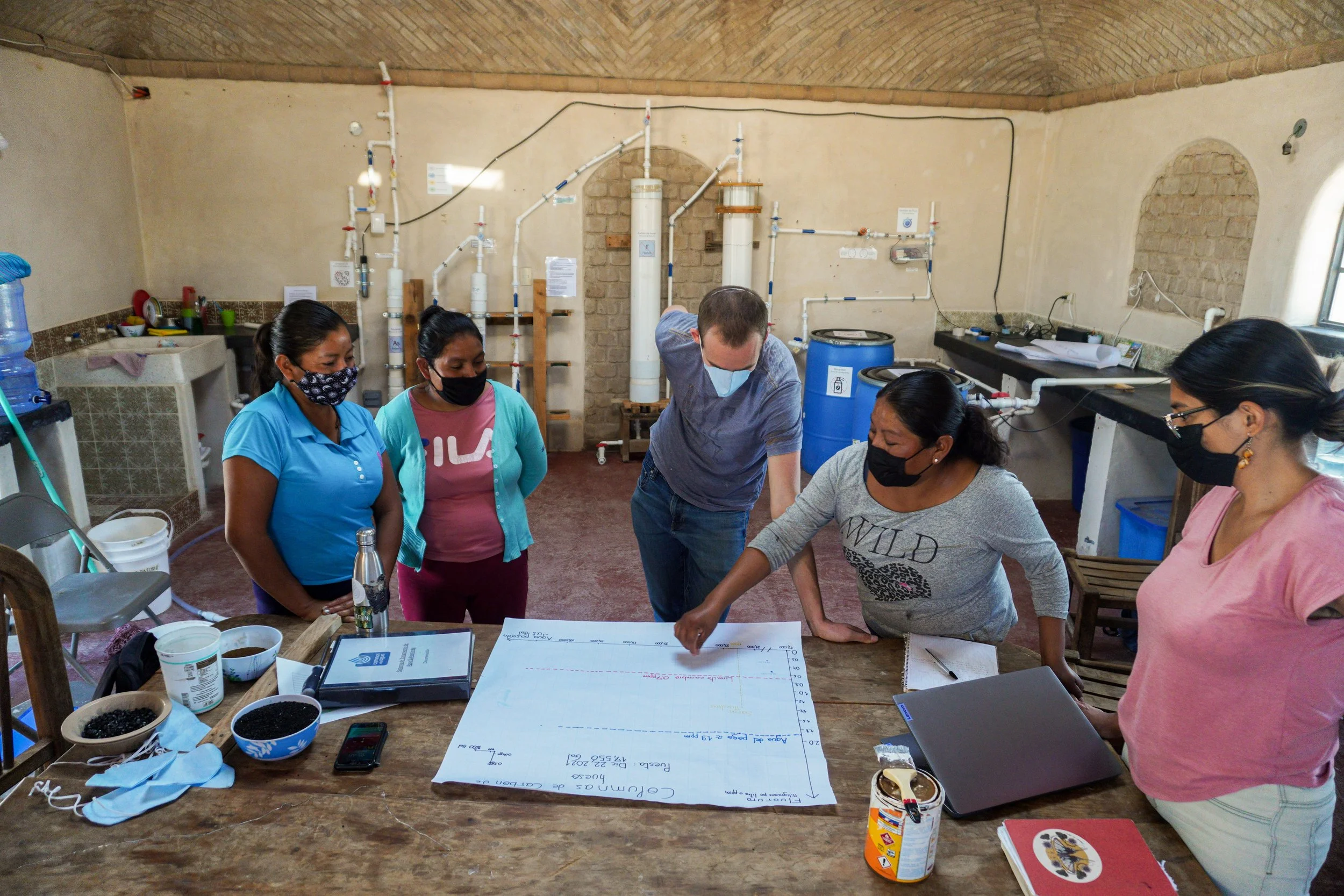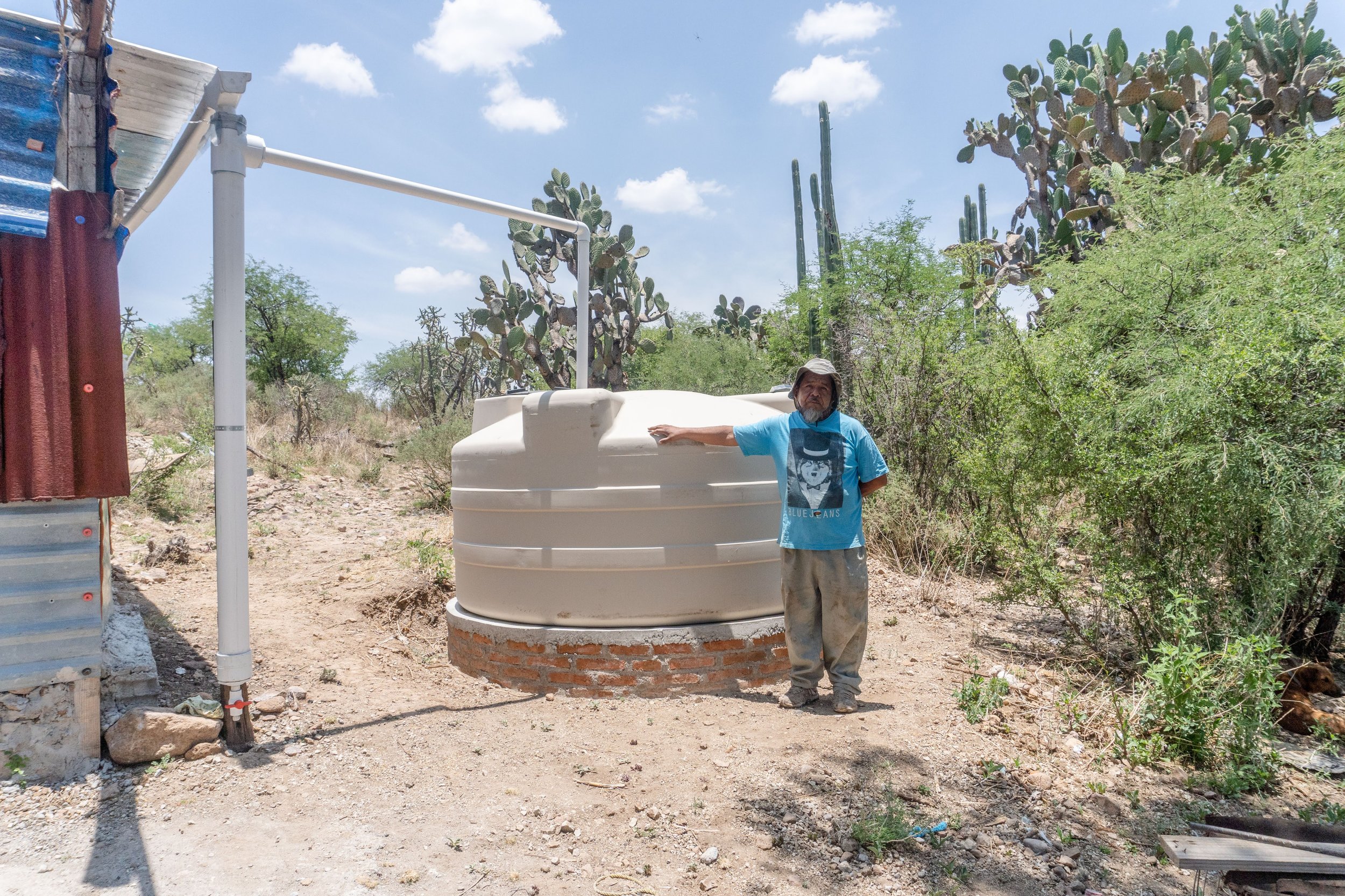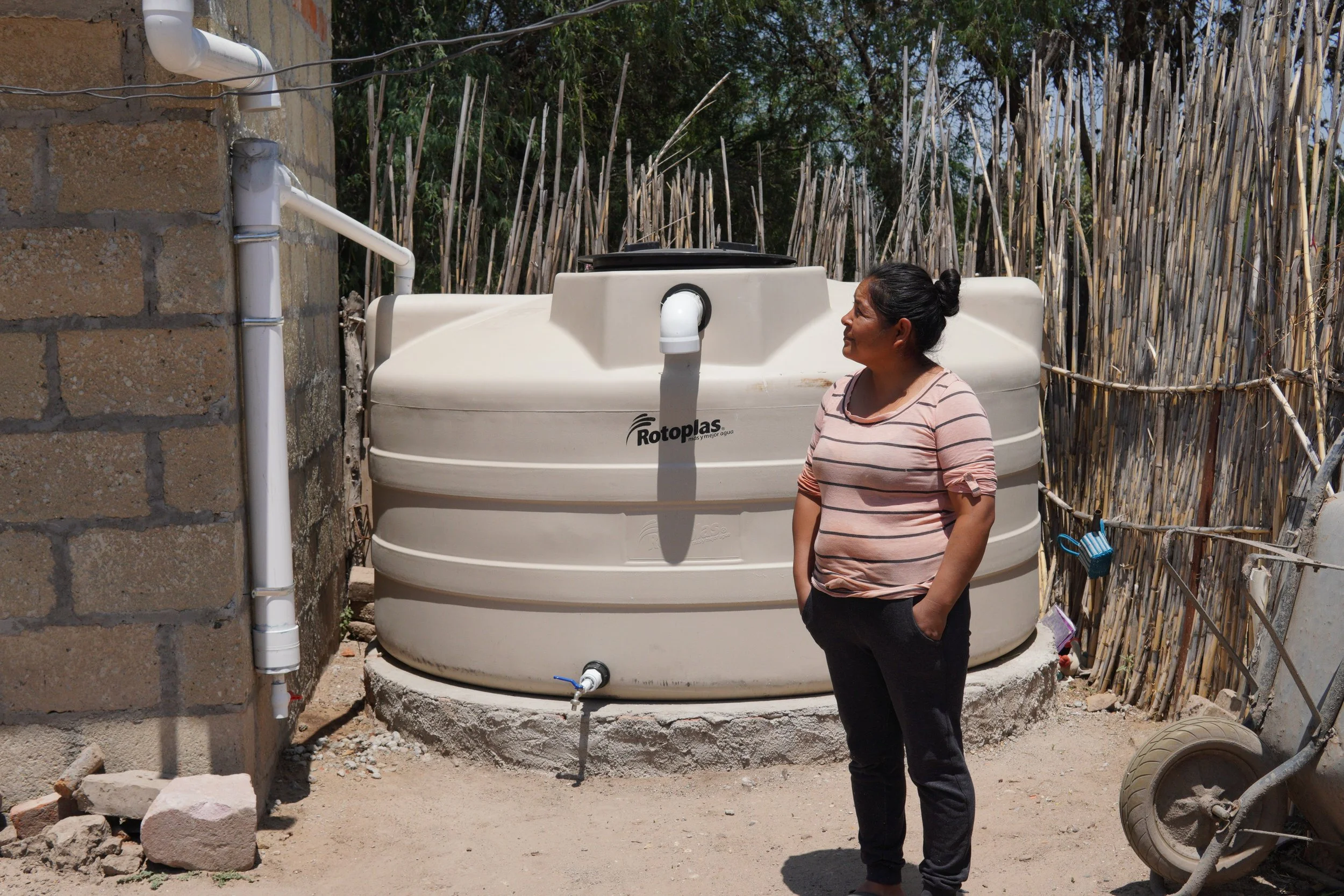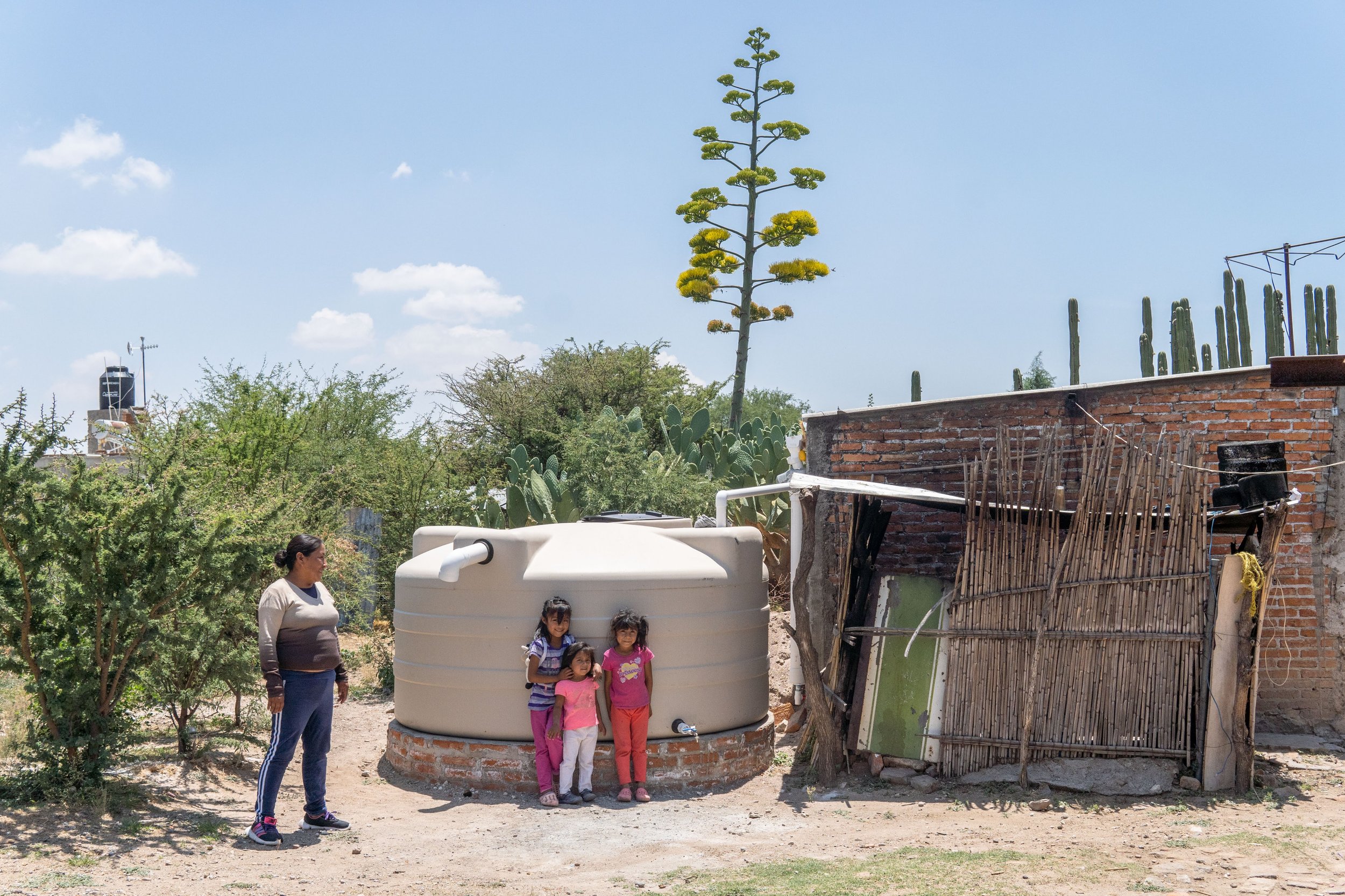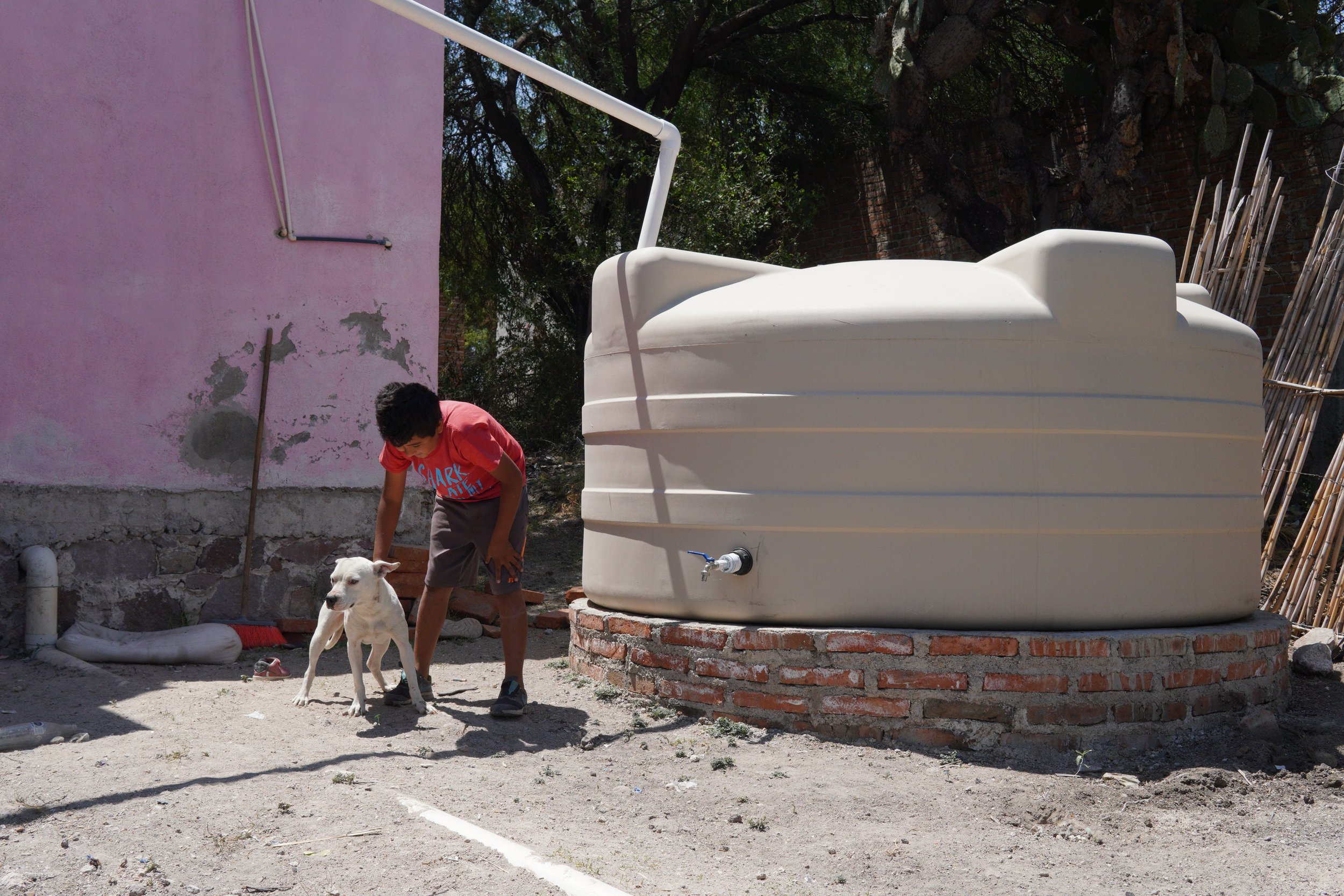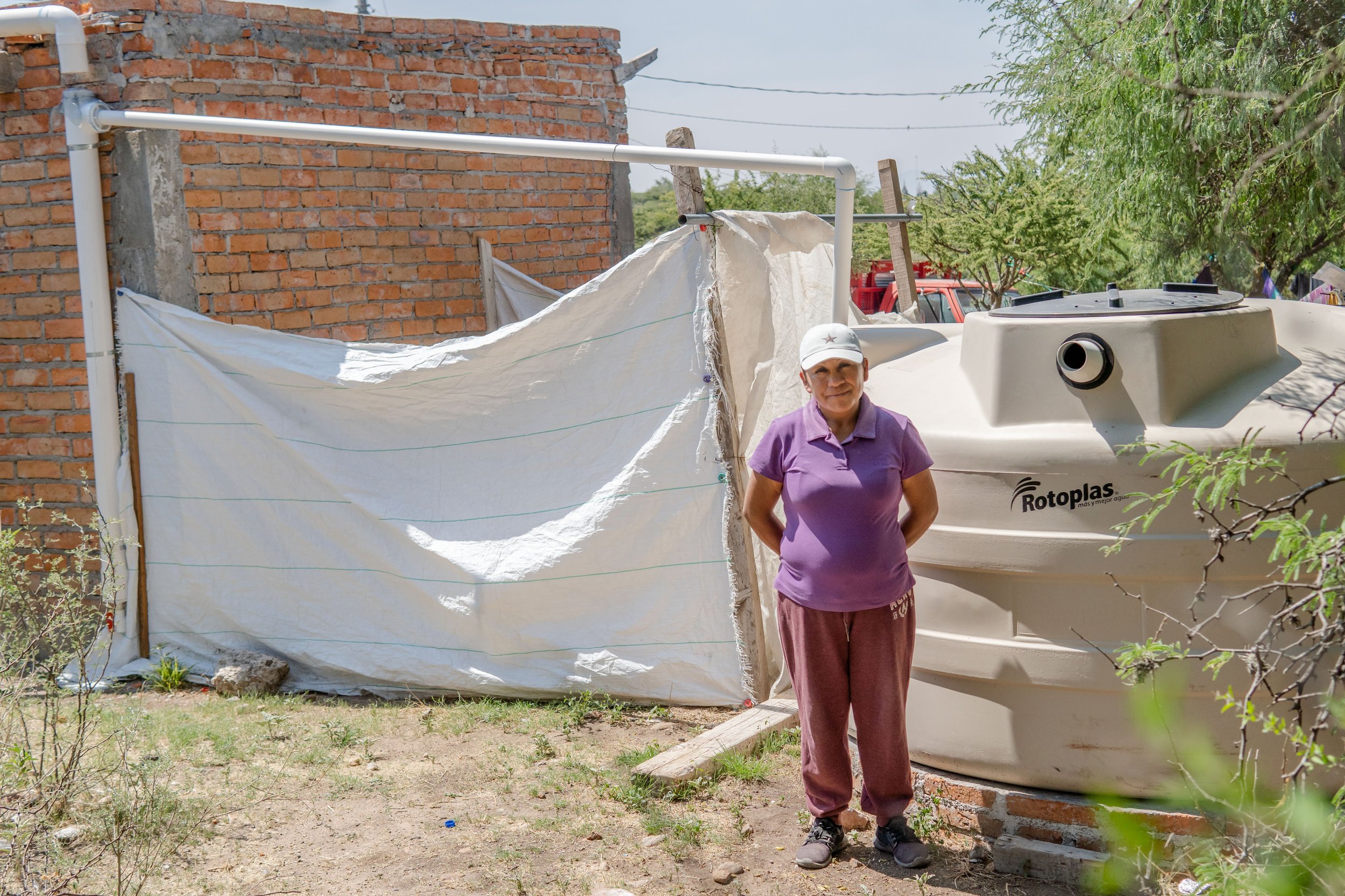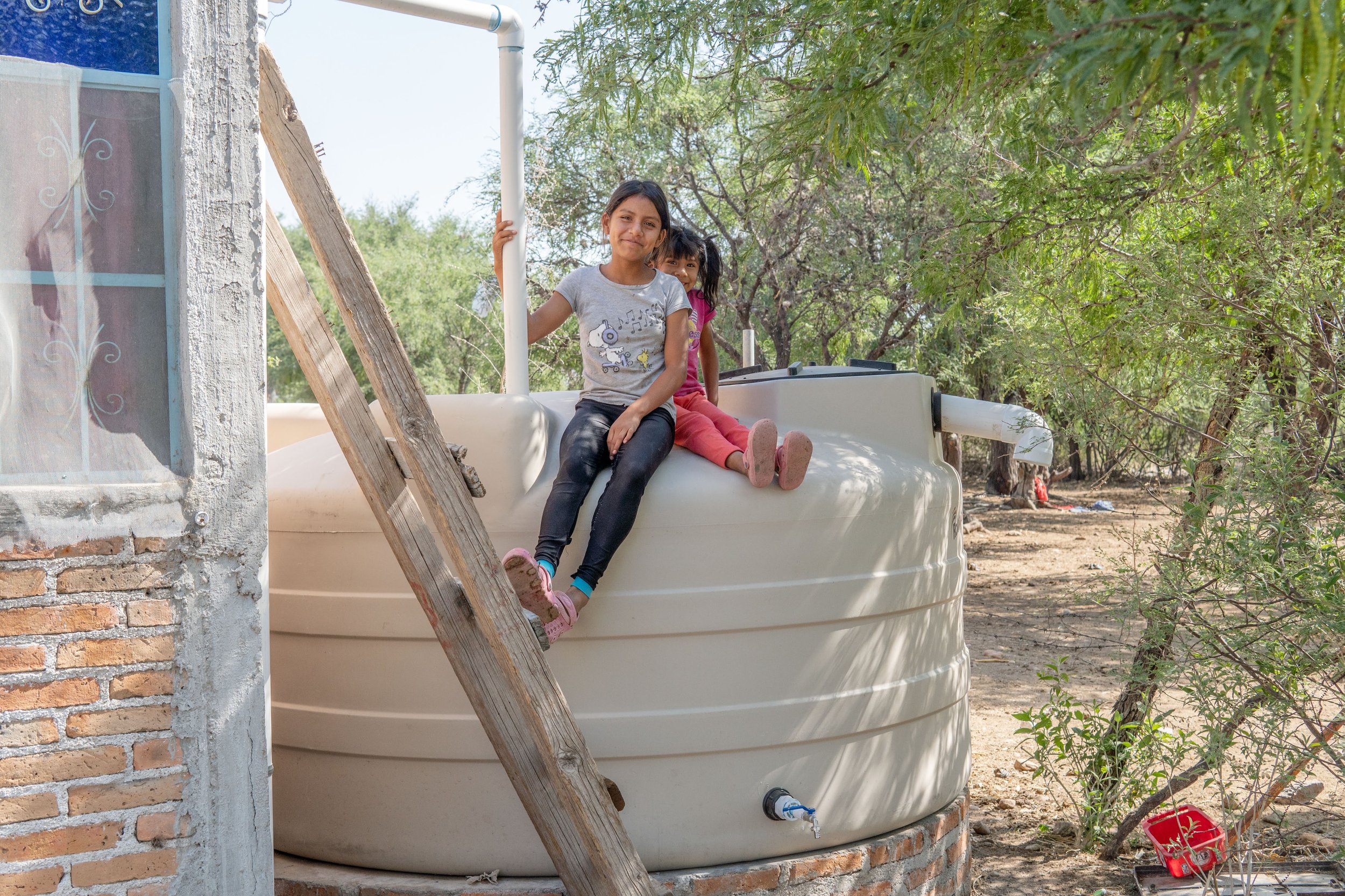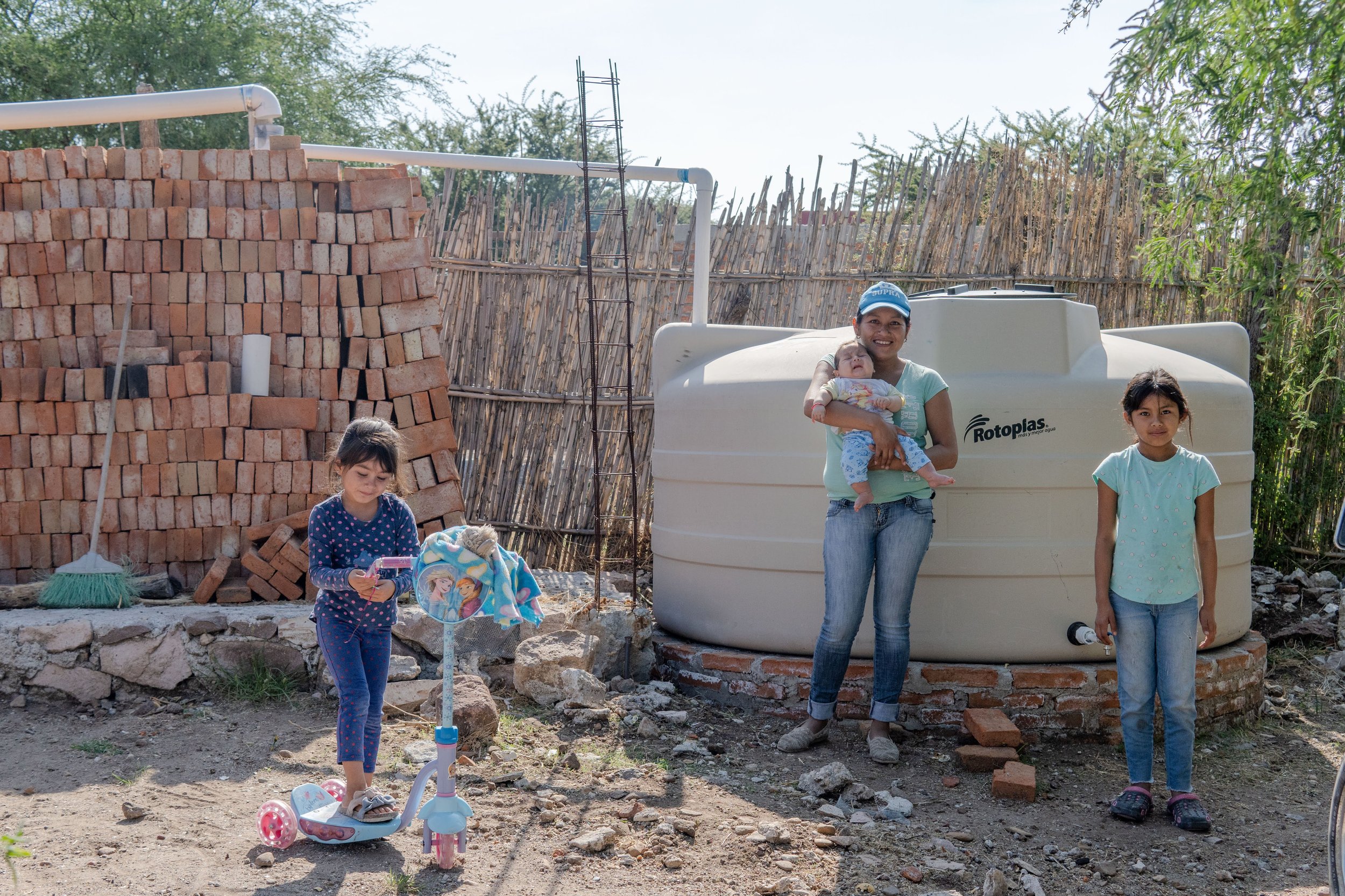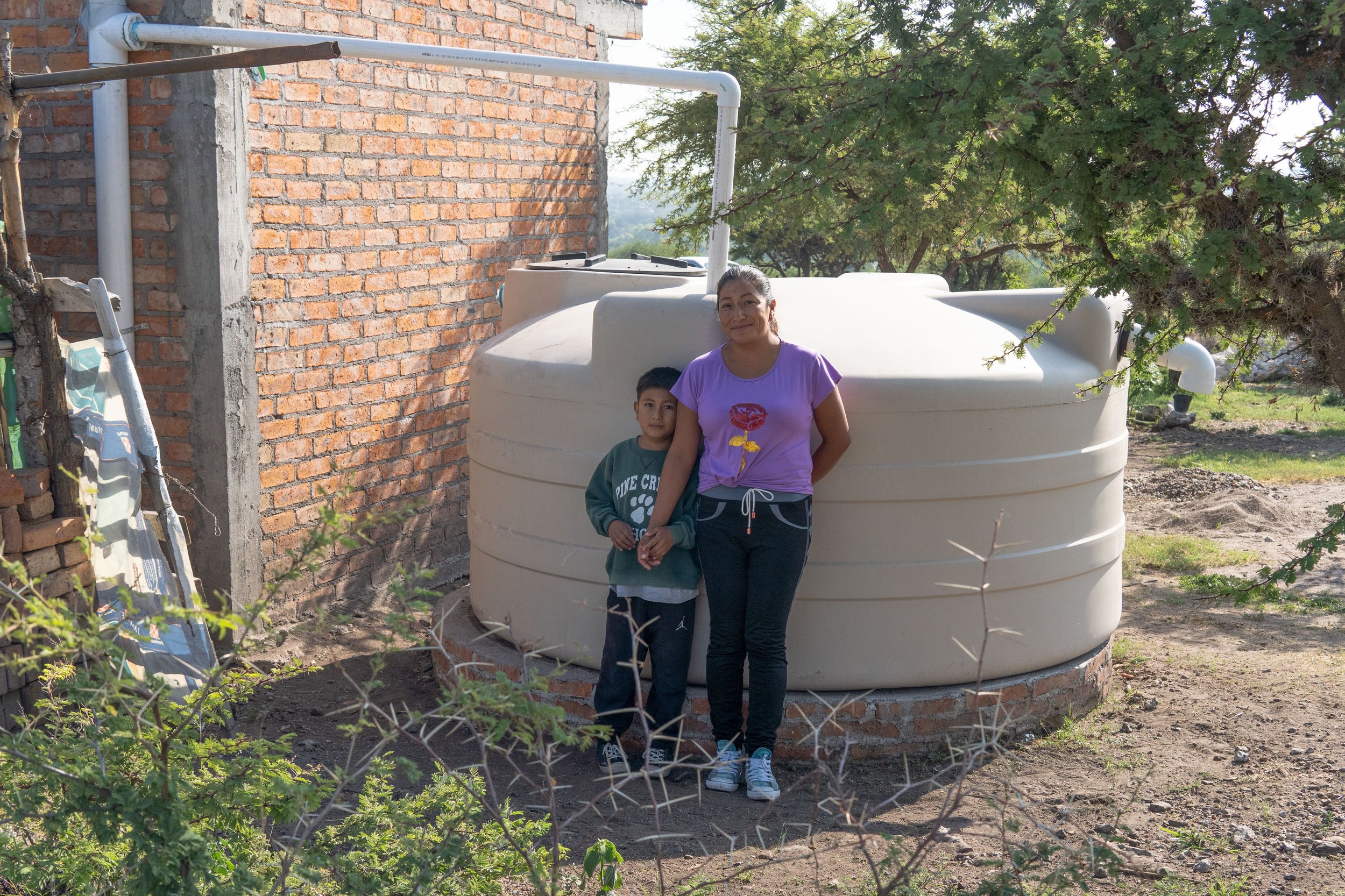A journey towards safe and healthy drinking water: Los Ricos de Arriba
The rural community of Los Ricos de Arriba, located in the municipality of San Miguel de Allende, Gto, Mexico, has well-established problems of extreme water contamination and scarcity. Many people living in Los Ricos de Arriba have clear signs of dental fluorosis, due to the excess levels of fluoride in their main drinking water supply, which comes from community well. Arsenic is also present, another naturally-occurring contaminant with harmful repercussions for the health of the people who consume it continuously, with children and pregnant women especially susceptible.
Water scarcity also plays a major role in Los Ricos; the well that supplies the community often runs out of water, and it also does not always reach the families living in the upper part of the community. So it is often necessary to look for other water sources, such as the Laja River, located a couple of kilometers away. The river water is only accessible during the rainy season and this water is also contaminated with biological pathogens that can be a serious health risk, especially for children. During the dry season, or more than 8-months out of the year, the options for obtaining water are considerably reduced.
The situation in this community, located very close to Atotonilco and made up of more than 70 families, is personally important to Caminos de Agua because it is adjacent to Caminos' Field Center for ceramic filter production, testing, and the development of two groundwater treatment pilots.
Caminos de Agua Field Center at Los Ricos de Arriba
For a couple of years now, Caminos de Agua and the community of Los Ricos de Arriba have been working side by side to address the water problem. Currently, more than 20 families in the community are obtaining safe drinking water from one of the most innovative technologies that we started developing six years ago: the Groundwater Treatment System (GTS); a full-size pilot system that is easy to built and operated and has an approximate initial investment cost of MXN 20,000 ($1,000 USD) for this size. That is roughly the cost of a single rainwater system that normally serves 1 or 2 families. It is easy to see the great advantage of the GTS, which manages to provide safe water for 15 to 30 families at almost the same cost.
Caminos de Agua is a bridge organization that accompanies community organizations in the implementation of technologies such as Rainwater Harvesting Systems (RWH) systems and manages the necessary resources to carry out the projects that arise from organized communities. For the implementation of GTS, the Caminos' Technology Development Team works in coordination with the social side of the organization, our Community Implementation and Education Team, to transfer the management of this system. We place listening at the center of this process, knowing the importance that it is the communities themselves who make the important decisions, sometimes through local grassroots community organizations or community committees. This is paramount to the long-term success and sustainability of any community program since it is the communities who have the knowledge about their own territory, organization, and community management, as well as being the ones who ultimately need to own these solutions. This helps to ensure that the technologies are long-lasting, practical, useful, and, most importantly, suited to the specific needs of each community.
Accompanying the community leaders in the implementation of this treatment system has been a key aspect of the work in Los Ricos as they did not have a history of community organization or a local grassroots organization. Our Education and Community Implementation Team, together with the community, work very closely to create coordinating committees and deep links that lay the foundations for a long-lasting and effective solution.
Los Ricos de Arriba coordinating committee along with Matthieu R&D coordinator and Ana Torres, community organizer at Caminos de Agua
The current community committee that was formed, together with the people participating in this project, is gradually spreading the word about the current water situation to other residents in the hopes that more and more people will take action and adopt preventive measures. In conversations with Caminos de Agua, the women participating in the GTS project considered it appropriate that in addition to the water treated with the GTS, some families could harvest rainwater to increase access and ensure sufficient water to cover all needs throughout the year.
Los Ricos de Arriba community coordinator committee
As part of the initiative Water and Health, a multi-year initiative largely funded by the Gonzalo Río Arronte Foundation, Caminos de Agua, along with our partners, Inana, A.C.,and many others, have committed to implementing a minimum of 330 RWH systems, over 3 years, with considerable community contributions as part of the project match.
With support from the Alstom Foundation, Caminos de Agua worked with the community of Los Ricos to build 15 household rainwater harvesting systems, each with 5,000 liters of storage capacity.
An inaugural event for the recently installed 15 RWH systems was held near the GTS facilities. Some of the voices that were heard were full of awareness and celebration, shared in trust among the people of the community. Working together, the participating families continue to manage the day-to-day operations and maintenance of both the GTS and Rainwater Harvesting Systems. Together, we are stronger, creating not only safe water access but also creating community.
Thanks to all of our collaborators.
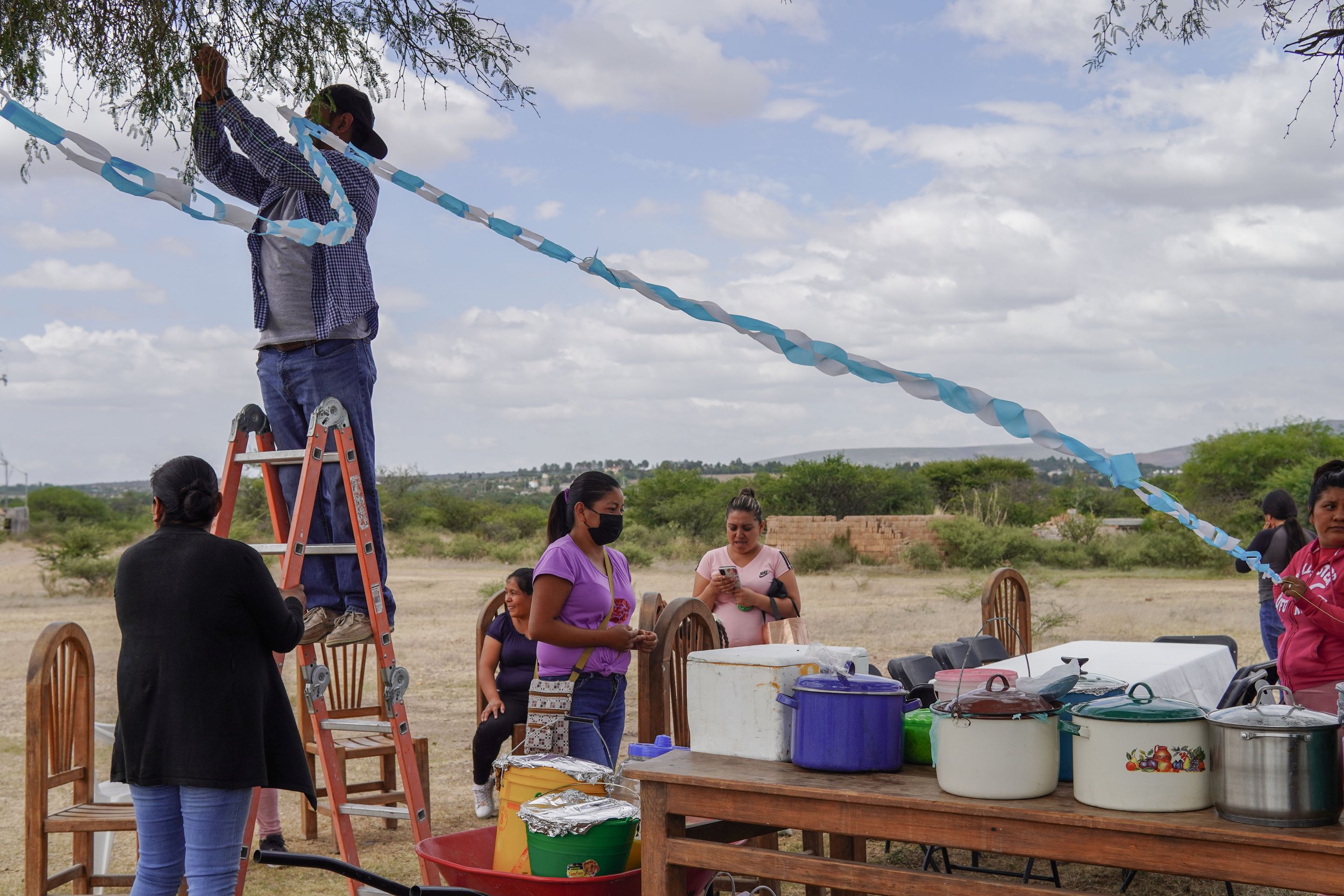
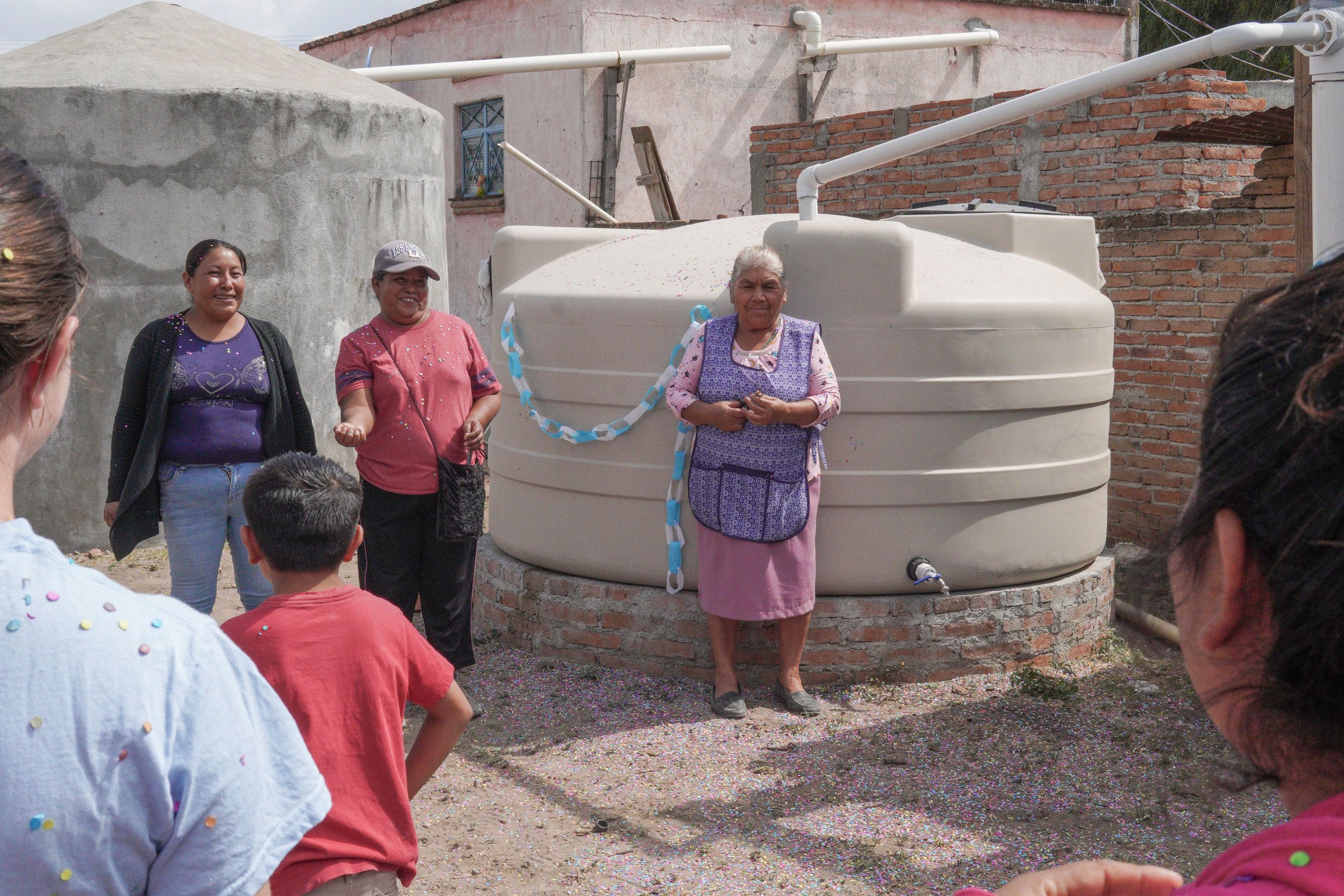
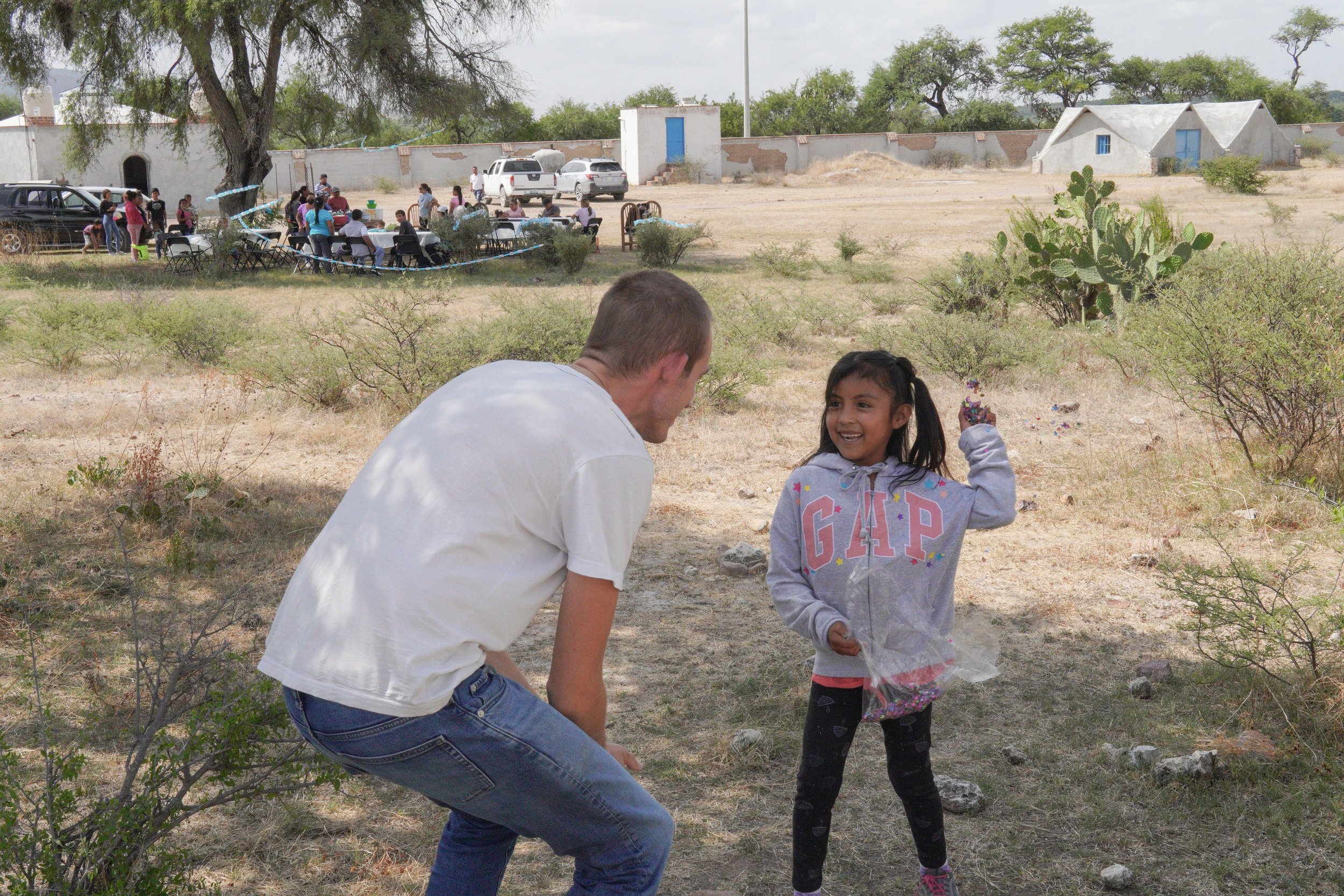
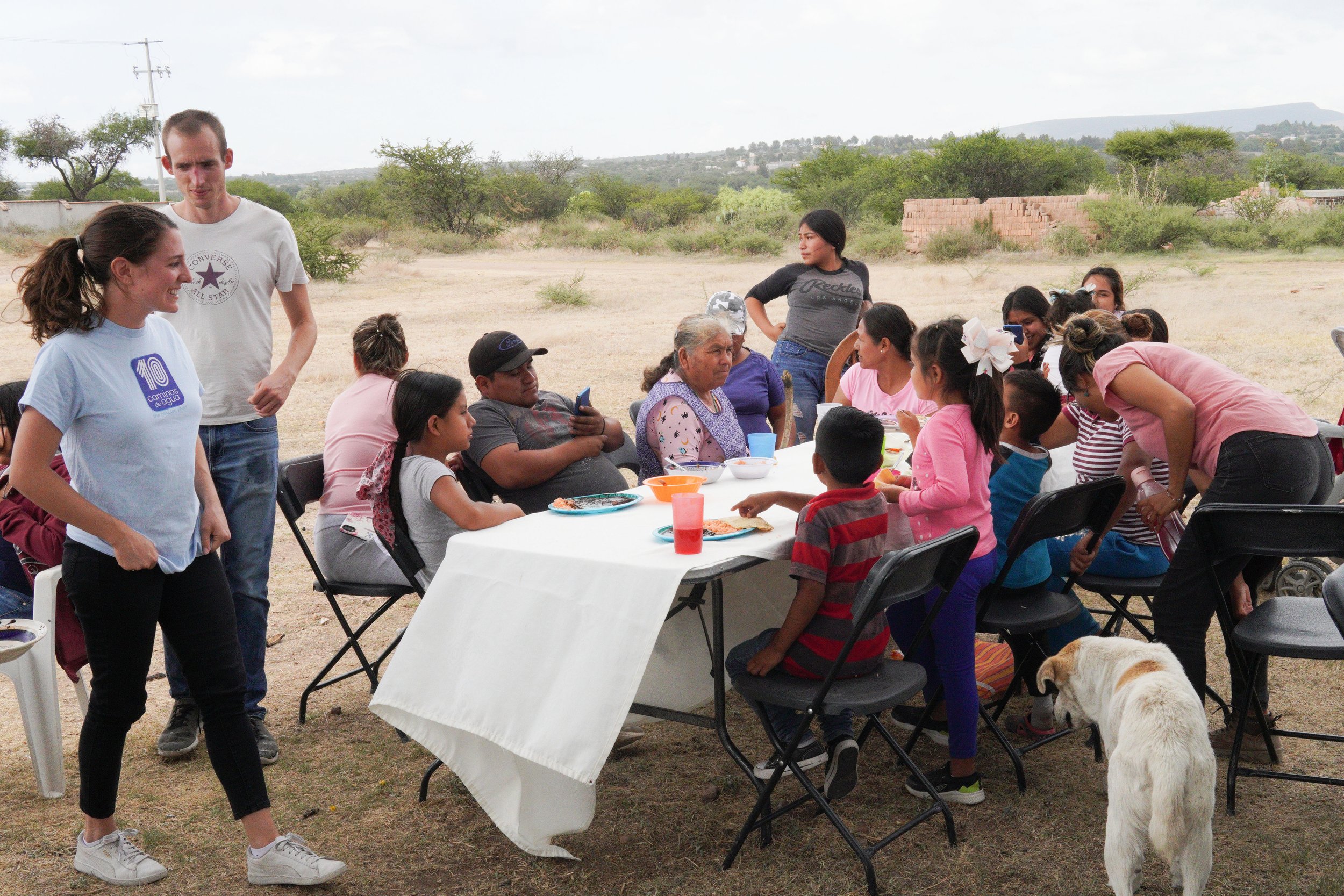
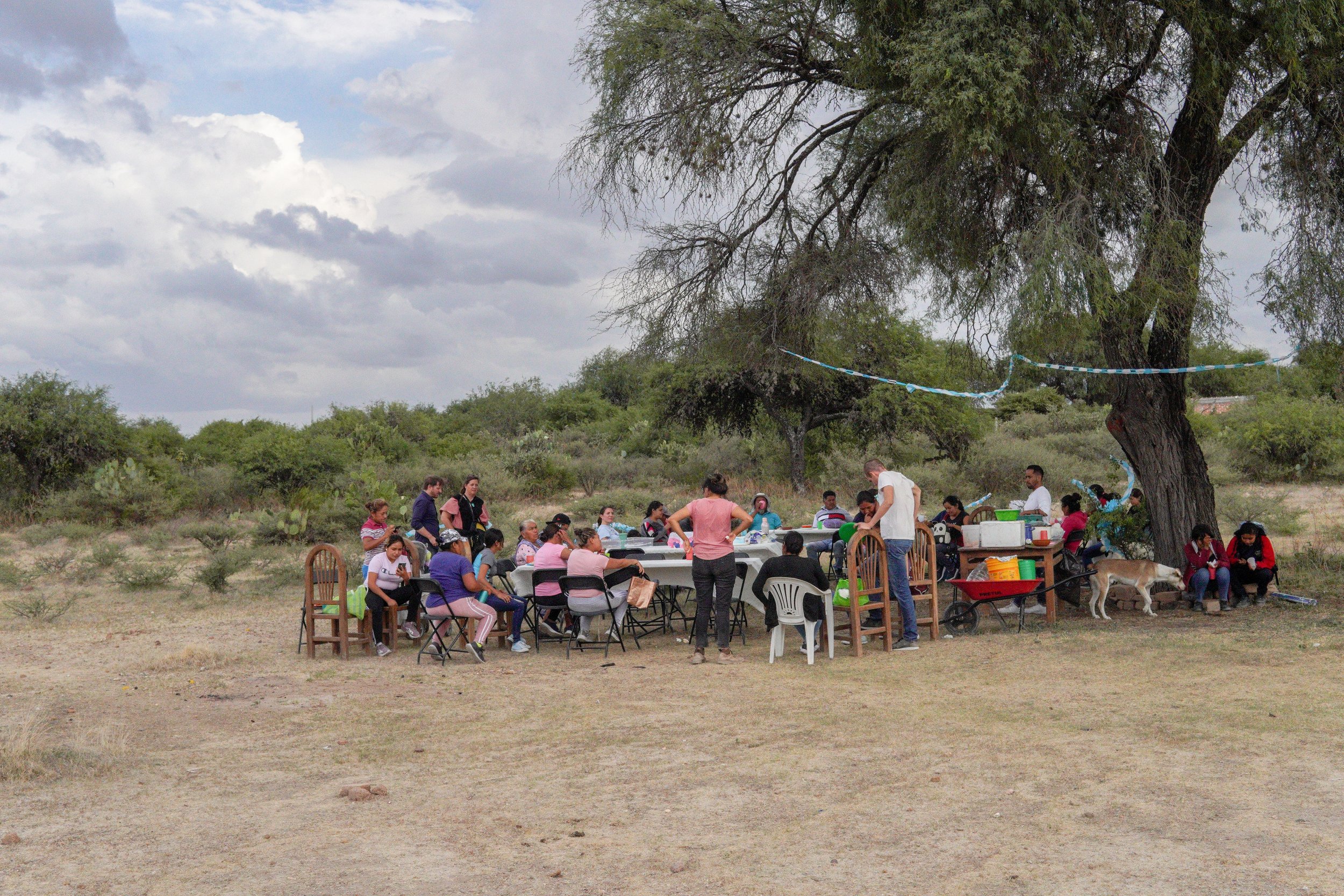
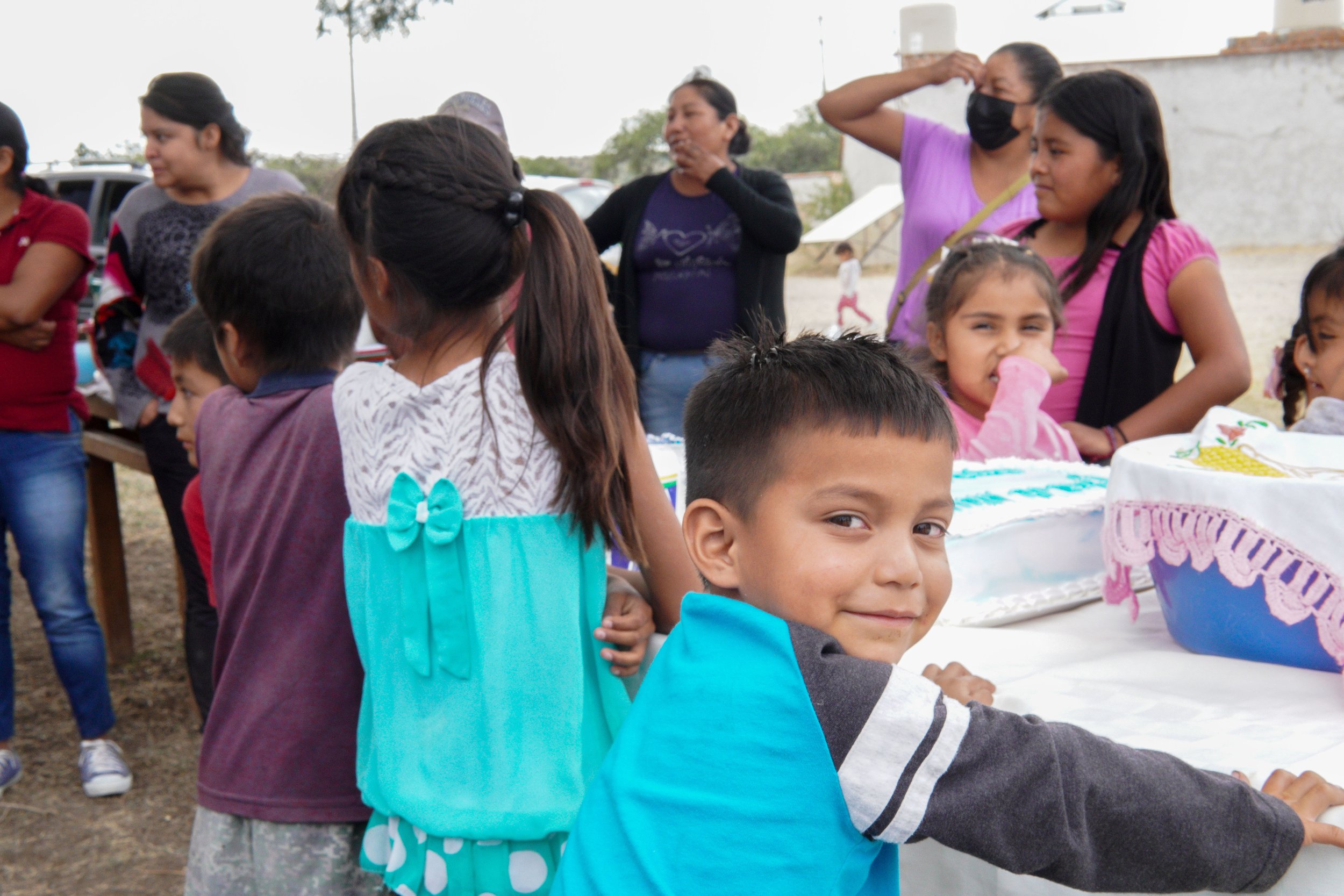
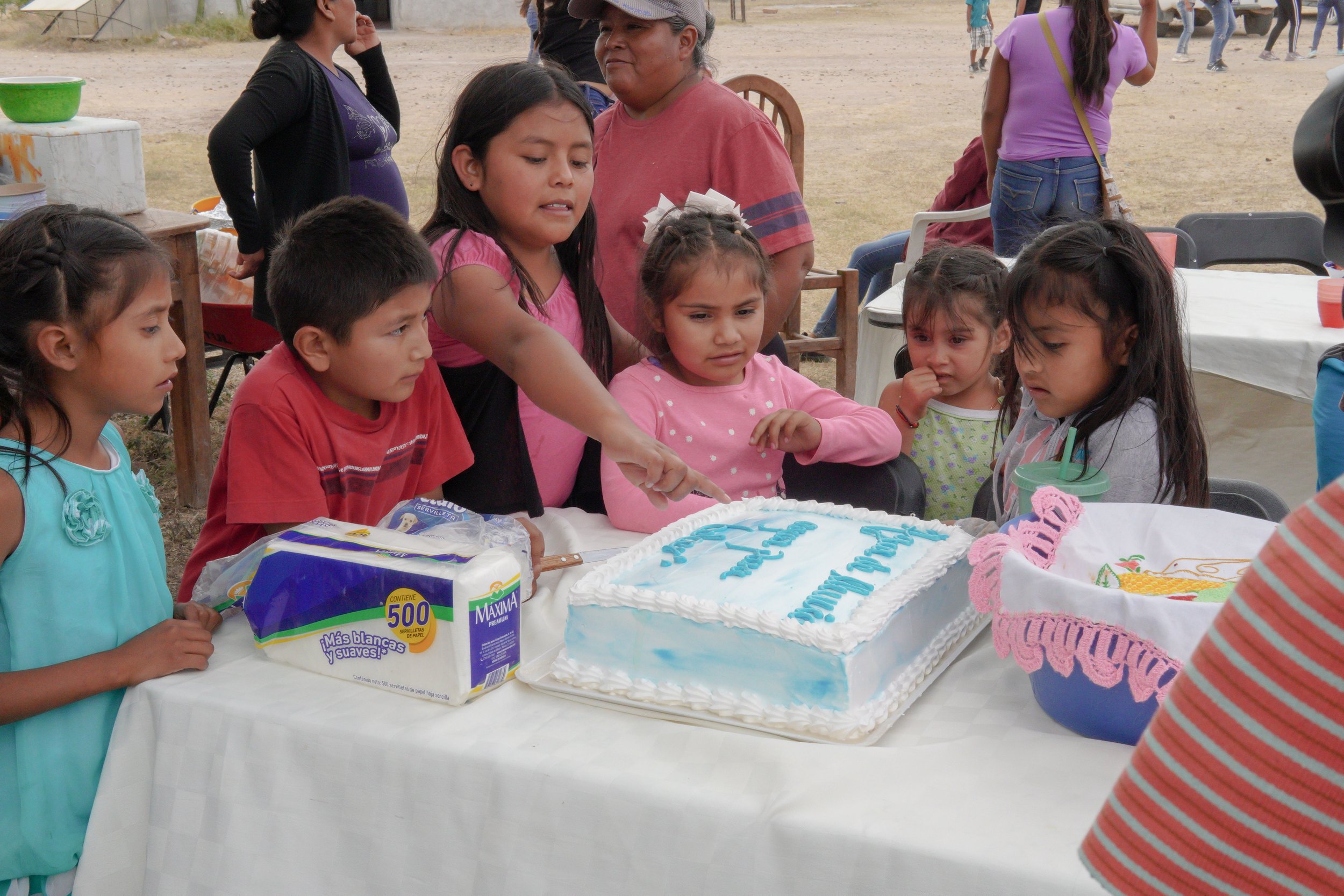
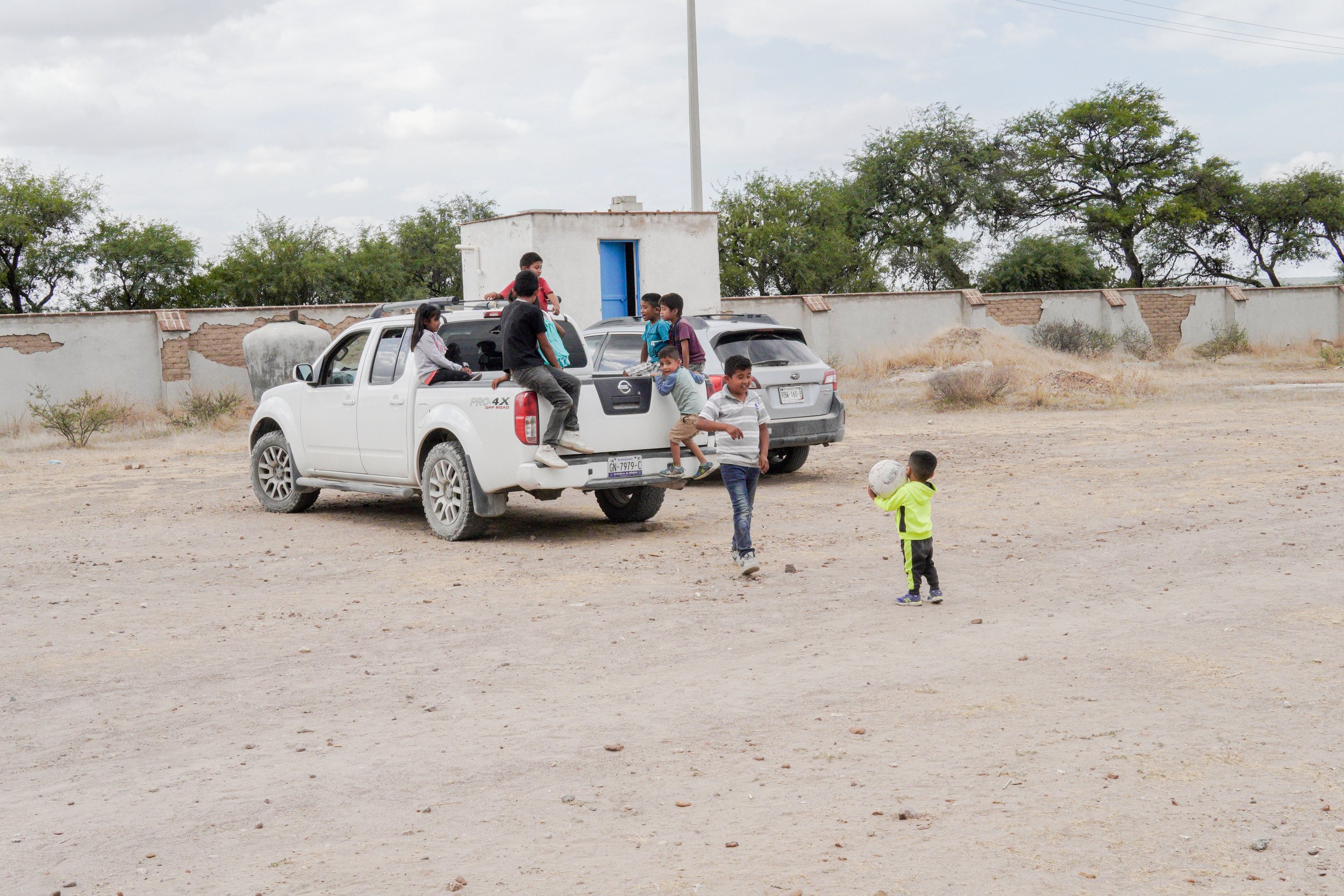
TESTIMONIALS
In the community of Los Ricos, this work triggered greater water awareness and impact; the participating residents organized to impact 15 additional families to install 5,000-Liter capacity domestic rainwater harvesting systems. This dream, thanks to the community of Los Ricos, is only the beginning of something greater. Listen to Marina's experience.
Listen to Ana's experience.
Listen to Rosario's experience.
Listen to Ángela's experience.
